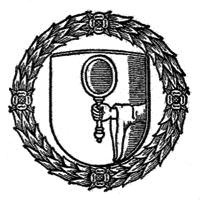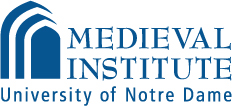Associate Curator of Collections – David M. Rubenstein Rare Book & Manuscript Library, Duke University
The Associate Curator of Collections provides dynamic and innovative leadership for a variety of specialized collecting areas within the Rubenstein Rare Book & Manuscript Library. She/he builds distinctive collections through purchases and gifts; develops public programs and outreach activities to promote the collections; participates in fundraising; and works with students, faculty and researchers to facilitate the use of the library’s holdings.
Responsibilities
- COLLECTION DEVELOPMENT: In consultation and cooperation with Duke faculty, other library staff and the Head of Rubenstein Collection Development, develops and implements collection policies to develop collections in a variety of subject areas and in all formats. Develops Literature and Economists’ Papers Project collections in addition to a variety of other areas. Manages budgets and funds associated with individual collecting areas. Solicits gifts and negotiates rights, access, and ownership agreements related to material acquisitions. Coordinates the physical receipt and intake of newly acquired materials with the Order Management and Technical Services Departments. (Approximately 40%)
- PUBLIC RELATIONS AND OUTREACH: Promotes collections to the Duke community, to the Triangle community, and to a national audience. Connects to the University and local community through workshops and presentations. Reaches out to a wider audience through digital collections and digital scholarship, social media and print publications. Works with the Duke University Libraries’ (DUL) Director of Communications to respond to media requests. Plans public programs that highlight collection strengths and new acquisitions, including symposia, readings, lectures, film screenings, and performances. (Approximately 10%)
- RESEARCH SERVICES: In conjunction with Rubenstein Research Services staff, provides advanced research consultations, including responding to reference questions and meeting with students and researchers one-on-one. Promotes use of subject-specific information resources and services in ways that meet user needs and expectations, utilizing current technologies and information tools. Collaborates with Duke faculty and with library instructors to integrate collections into undergraduate and graduate courses. Participates in weekend and holiday reference desk rotations. (Approximately 10%)
- EXHIBITION CURATION: With the DUL coordinator of exhibitions and the Director of the Rubenstein Library, plans, develops, curates, and promotes exhibitions for Rubenstein exhibition spaces. Work includes selecting items to be exhibited, preparing written descriptions of materials, working with others on project planning, publicity and associated events. Work is coordinated with students, faculty, and others as needed. (10% )
- TECHNICAL SERVICES: In conjunction with the Rubenstein Library Technical Services Department, prioritizes the processing and cataloging of collections, providing information and support to facilitate this work. With the Curator of Collections and Conservation staff, determines appropriate conservation treatments for items in the collection. (Approximately 10%)
- DEVELOPMENT: With the Director of Library Development and the Rubenstein Library Curator of Collections, develops and implements development plans including donor relations, development events, and grant writing. (Approximately 10%)
- LIBRARY AND UNIVERSITY ACTIVITIES: Participates in the planning, review, and implementation of the goals, policies, and procedures of the Rubenstein Library and its Collection Development Department and in DUL activities as appropriate; serves on library and university committees. Carries out special projects and performs other duties as assigned. (Approximately 5%)
- PROFESSIONAL DEVELOPMENT: Participates in professional and academic activities relating to collection strengths, and professional librarianship. Displays continuing growth in professional and subject knowledge and takes an active interest in the profession. Growth and interest should be demonstrated through continuing development of professional knowledge and abilities, membership and participation in professional organizations, and service to the library, University, or community in a professional capacity. Reviews professional literature and participates in activities to stay informed about trends in supporting research in academic research institutions. (Approximately 5%)
- Performs other duties as assigned.
Supervisory Responsibilities
May supervise temporary project staff, and graduate or undergraduate assistants as needed.
Qualifications
It is the expectation that all Duke University Libraries staff members will demonstrate exceptional workplace behaviors in the execution of their specific position responsibilities. These behaviors are customer focus, collaboration, creative problem solving, continuous learning and a commitment to diversity.
Education:
Required: Advanced academic degree in a relevant discipline, MLS from an ALA-accredited program and/or an advanced degree from an accredited program in archives administration.
Preferred: Additional advanced degree from an ALA-accredited program, a program in archives administration, or in a relevant subject area.
Experience:
Required: Prior professional archival/collection development experience working in special collections or in collection development; familiarity with standard archival and library procedures; demonstrated knowledge of relevant subject area; ability to relate effectively with users and donors of special collections materials; experience and skill in making public presentations and in planning public programming; experience working with both advanced and beginning researchers; excellent interpersonal, oral and written communication skills; ability to work independently and collaboratively as a member of a team; demonstrated commitment to providing outstanding customer services.
Preferred: Three or more years of professional archival/special collections experience; experience with assessment tools and methods; experience building collections in an academic library and in the acquisition of rare materials; prior experience working in an academic research library; familiarity with web publishing technologies and with digital scholarship; experience with records management, visual materials, digital materials and/or grants; knowledge of digital library environment; demonstrated leadership in establishing and implementing successful new programs; prior supervisory experience; experience with user and/or usability study methodologies.
Working Conditions
- Must be able to lift 40 pounds
- Must be able to work in an environment in which exposure to materials containing dust and mold is possible
- Normal office environment
- Occasional weekend shifts required
- Occasional travel required
These statements are intended to describe the general nature and level of work being performed by the employee in this position. They are not intended to be construed as an exhaustive list of all responsibilities, duties, and skills required of a person in this position.
Salary and Benefits
Salary and rank dependent on qualifications and experience. Minimum annual salary: $50,000. Comprehensive benefits package includes 20 days vacation, 13 holidays, 12 days sick leave; health, dental, disability and life insurance and support for professional development and training.
Environment
Since its founding in 1924, Duke University has grown into one of the most prestigious private universities in the world and its medical center ranks annually among the top in the nation. The Duke University Libraries are the shared center of the university’s intellectual life, connecting people and ideas. The Libraries consist of the William R. Perkins Library and its branches: Rubenstein Rare Book and Manuscript Library, Lilly, Music, and the library at the Duke Marine Laboratory in Beaufort. Duke’s library holdings of 6.1 million volumes are among the largest of private universities in the United States.
Duke’s hometown is Durham, North Carolina, a city with vibrant research, medical and arts communities, and numerous shops, restaurants and theaters. Durham is located in the Research Triangle, a growing metropolitan area of more than one million people that provides a wide range of cultural, recreational and educational opportunities. The Triangle is conveniently located just a few hours from the mountains and the coast, offers a moderate climate, and has been ranked among the best places to live and to do business.
Duke offers a comprehensive benefit packages which includes both traditional benefits such as health insurance, leave time and retirement, as well as wide ranging work/life and cultural benefits. Details can be found at: http://www.hr.duke.edu/benefits/index.php.
Application
Send cover letter, detailed resume and the names, addresses (mailing and e-mail), and telephone numbers of three references to: Teresa Tillman, Library Human Resources, at library-jobs@duke.edu. Please include ASSOC CURATOR in the subject line. Review of applications will begin in early June and will continue until the position is filled.
Applications which are missing any of the components listed above will not be reviewed.
Duke University is an Affirmative Action/Equal Opportunity Employer committed to providing employment opportunity without regard to an individual’s age, color, disability, genetic information, gender, gender identity, national origin, race, religion, sexual orientation, or veteran status. The Duke University Libraries have a strong commitment to Affirmative Action and is actively seeking to increase the racial and ethnic diversity of our staff.
 This month, Sarah Spence spoke with Medieval Academy News about her vision for Speculum.
This month, Sarah Spence spoke with Medieval Academy News about her vision for Speculum.



